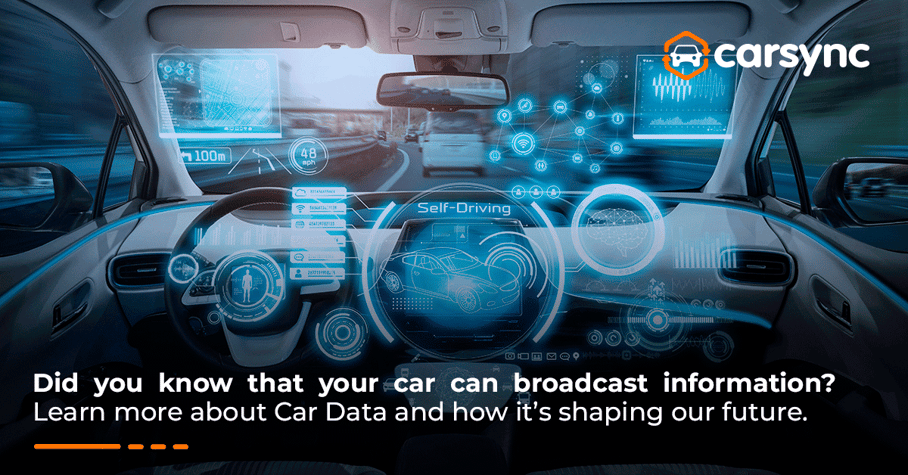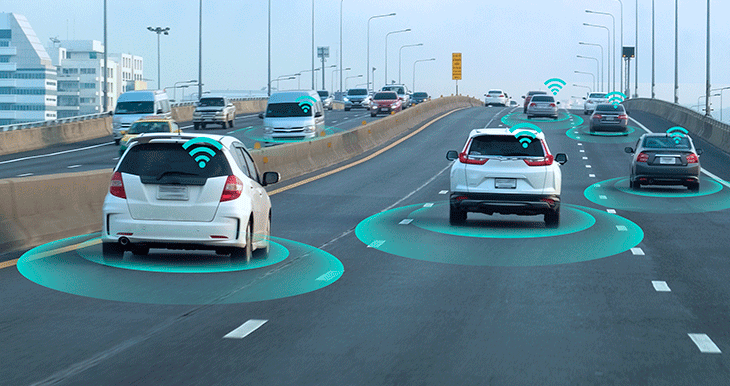 Why is Car Data one of the most relevant technological achievements of our time, and how has Location World helped shape the future of the automotive industry.
Why is Car Data one of the most relevant technological achievements of our time, and how has Location World helped shape the future of the automotive industry.
What does car data mean?
The term data refers to a collection of factual knowledge about something. "Data refers to distinct pieces of information, usually formatted and stored in a way that is concordant with a specific purpose. Data can exist in various forms: as numbers or text recorded on paper, as bits or bytes stored in electronic memory, or as facts living in a person's mind." (webopedia.com).
Today, our routines are mostly made of data. Data lives in everything: from our phones and computers to a lot of the gadgets we use every day, like our vacuum cleaner, our sports watch, our car, and our virtual assistant, be it, Siri or Alexa. Gadgets like the ones we mentioned are part of what we call IoT (the Internet of things). IoT mainly refers to the usage of Internet technology to improve daily gadgets and tools by transforming them into autonomous machines through technology.
Suddenly, these otherwise simple electronic devices start to fulfill larger and more complicated tasks. Our vacuum cleaner, for instance, can measure our home with astounding precision. Our watch can know how many steps we walked today and even how fast our heart is beating, and our virtual assistants know most of our preferences and how many emails we receive daily, among other things.
And if we pause to think about how much of the data these devices gather connects to our social profiles and identities, we can get to a whole new realization. When we connect them with Instagram, Facebook, Twitter, WhatsApp, or TikTok, we discover a vast virtual universe that is safe to say is shaping our present and our future. In his book We Are Data, author John Chenny-Lippold studies the implications of living in a society ruled by algorithms (algorithms are calculation methods that lead to a specific solution. Every action on social media works through these calculations).
According to Cheney-Lippold and several other analysts, the modern kingdom of data can have severely negative consequences in our society. Yet, we cannot deny that it also offers a considerable amount of benefits. The arrival of car data is one of the most fascinating and practical achievements of the modern era. Car data can change the structure of a whole city or a company.
Car data comes into play when we take the core concept of data and apply it to everything car-related, and it works not only for cars, per se, but also for trucks, small and big, and heavy machinery.
To grasp the concept of car data, we need to talk about the vehicles that can broadcast it. Car data needs a specific type of technology, of course: GPS systems and devices, and a connection to the Internet. Some of the current vehicles are already equipped with this type of technology. Others use APIs to send and receive data, and the rest use "telematics boxes." A GPS device only offers information about the position of a car; whereas a telematics box is connected to the vehicle's main computer, and it can get information like failure alerts or fuel usage in real-time. It can also use a car or a truck's accelerometer and gyroscope to identify bad driving habits and prevent accidents.
Whether we talk about a vehicle that already comes with GPS or one that needs external devices, it first needs to read the information provided by a car, before sending it to a receptor, which could be a cellphone, a tablet, or a computer.
How can we benefit from car data?
A vehicle able to broadcast car data will allow us to anticipate the machine's needs and, therefore, predict ours. A smart vehicle will have the ability to keep us on the know about things like:
-Weaknesses and the elements that need to be fixed, to ensure optimal functioning.
-Services available while on the go. For example, garages, gas stations, service stations, restaurants, etc.
-Information on vehicle speed and usability in cities and avenues. For example, if our car travels to a different city or even a new country, car data will provide information on speed limits and local restrictions.
-Performance and failure of a specific car model, which will allow future improvements.
What are some of car data's main challenges?
As we stated before, applying technology to cars and using their information can have positive and negative results. If we focus on car data only, its usage will eventually have to face some specific challenges, such as safety issues and incompatibility, among other things:
1.-Safety issues
Having a vehicle that can send and receive information can leave room for data-related and technical safety risks. People with bad intentions could access smart car data and violate its security. That could damage its software and cause several inconveniences, being the worst-case scenario for someone to steal the car by unlocking it remotely. Someone could also affect some of the vehicle's functions, making it difficult or unsafe for anyone to drive it.
2.-Incompatibility
Another possible risk with car data is the incompatibility between a vehicle and a telematics box, causing failure and affecting its system. The good news is that if there's an industry that's continually improving is the telematics industry. That means all of its processes go through constant updates that fix whatever failure comes in the way through rapid changes and transformations. For instance, members of the automotive industry in Europe have joined forces to study the risks and benefits of car data, to establish common grounds from which they can reach new and improved methods to apply car data.
Car Data, AI and Machine Learning in the Automotive Industry
As mentioned above, thanks to car data, the automotive industry has gotten access to information that optimizes several products and services. However, this is not the only achievement that this technology has reached.
Artificial intelligence and the automotive industry
Artificial intelligence is a technology that operates without human intervention. That means it is somewhat autonomous and can perform physical to operational tasks on the network (that could go from storing and analyzing data to transporting cargo) without human assistance.
In the automotive industry, the use of AI is already a vital part of many production processes. The assembly of vehicles, for example, is done through automated machines. What is the benefit? Less risk of failure, more effective methods on the production line, and higher profits.
Machine learning
You may not have heard much about this topic; however, it is part of a branch of artificial intelligence that allows machines and technologies to learn data's movement by themselves.
It may sound like something we can't use yet; however, Netflix, Spotify, and other entertainment platforms use it daily to understand your tastes and provide recommendations based on them.
In the automotive industry, machine learning is used (among other things) to know how airbags work during accidents to optimize them or locate them in more strategic areas. Through digital tracking services, they can help predict dangerous driving or avoid specific zones for a certain period.
Aug 18, 2021 12:00:00 AM